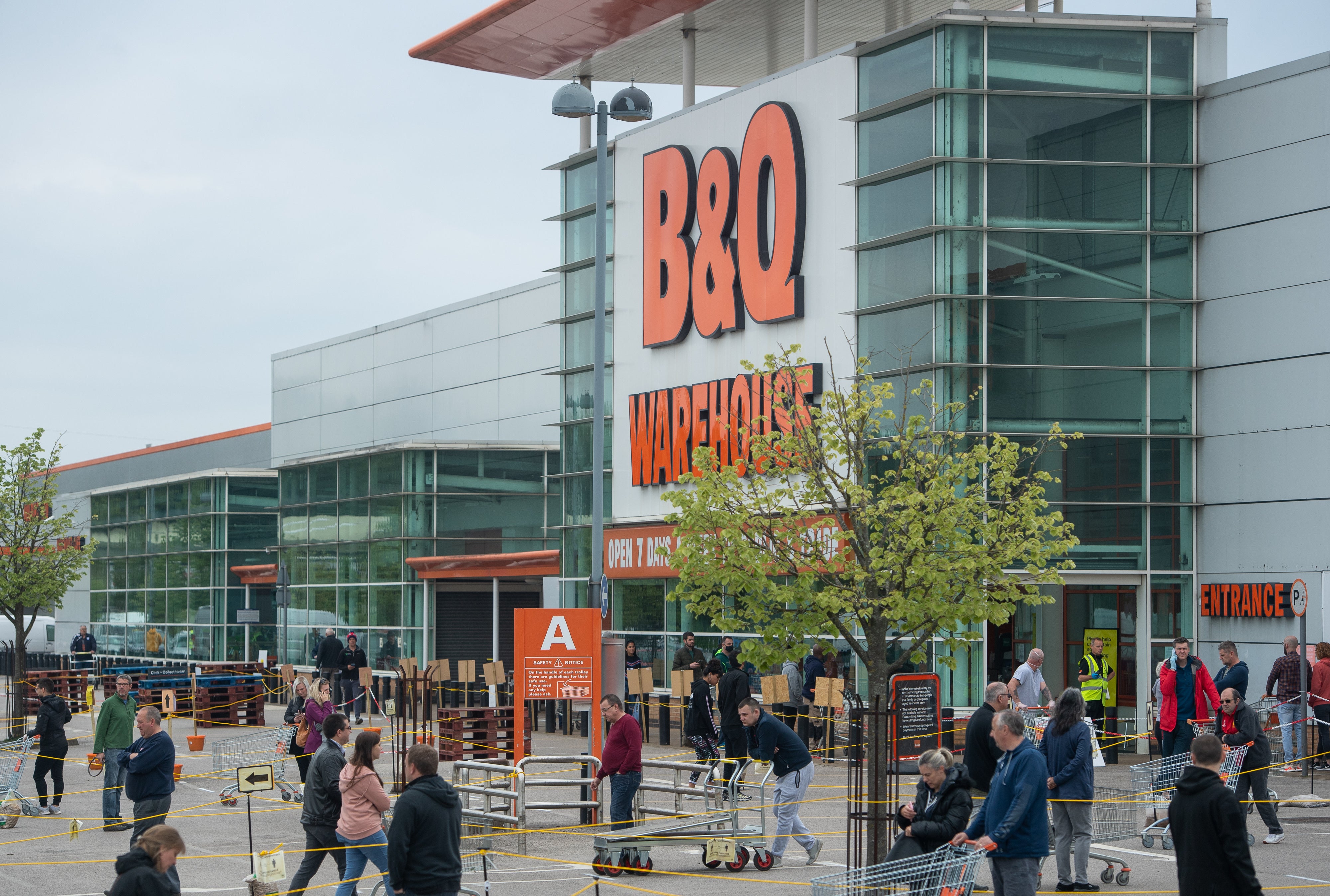B&Q owner Kingfisher set for resilient sales after Covid DIY boom
The group, which also owns Screwfix, performed strongly during the pandemic as customers locked in their homes looked towards DIY.

Your support helps us to tell the story
From reproductive rights to climate change to Big Tech, The Independent is on the ground when the story is developing. Whether it's investigating the financials of Elon Musk's pro-Trump PAC or producing our latest documentary, 'The A Word', which shines a light on the American women fighting for reproductive rights, we know how important it is to parse out the facts from the messaging.
At such a critical moment in US history, we need reporters on the ground. Your donation allows us to keep sending journalists to speak to both sides of the story.
The Independent is trusted by Americans across the entire political spectrum. And unlike many other quality news outlets, we choose not to lock Americans out of our reporting and analysis with paywalls. We believe quality journalism should be available to everyone, paid for by those who can afford it.
Your support makes all the difference.B&Q owner Kingfisher is expected to attempt to reassure investors that the pandemic-fuelled DIY boom is staying strong despite waning consumer confidence as it reports its latest financial results.
The group, which also owns Screwfix, performed strongly during the pandemic as customers locked in their homes sought to invest and improve their properties.
However, shares in the FTSE 100 company are now trading roughly a quarter below their autumn peak.
Danni Hewson, financial analyst at AJ Bell, said that market jitters related to the conflict in Ukraine could be having an impact on the stock but said this is “not casting a direct cloud” and its recent slump could be driven by worries over dampened demand.
“Fears that the lockdown- and pandemic-inspired DIY boom is cooling is one explanation and Kingfisher is showing signs of a slowdown in sales, even if revenues continue to exceed management and analysts’ expectations,” she said.
The company has recently upgraded forecasts predicting a decline over the second half of the financial year and investors will be hoping for further improvements to the firm’s outlook at the full-year results announcement on Tuesday March 22.
In September last year, chief executive Thierry Garnier said that the company was due to post a drop of between 3% and 7% in the second half of the financial year to January, improving on previous forecasts which suggested sales could fall by as much as 15%.
In the firm’s November trading update, it reported that like-for-like sales were even better than the improved prediction, falling 2.4% in the third quarter.
Shareholders will hope that this will reflect a more stable home improvement market and an easing of supply and labour pressures.
Kingfisher is expected to post a jump in profit to £950 million for the past year, but investors will be keen to hear how soaring costs in the construction sector could affect future profitability.
Meanwhile, home improvement rival Wickes is also due to update shareholders on its full-year results on Friday March 25.
It comes after the company, which was spun off Travis Perkins during the pandemic, delayed the publication its accounts on Tuesday after KPMG requested more time to complete its audit of the business.
The delay may have unnerved investors but they welcomed news the firm was still expected to post a pre-profit of at least £83 million for the year.